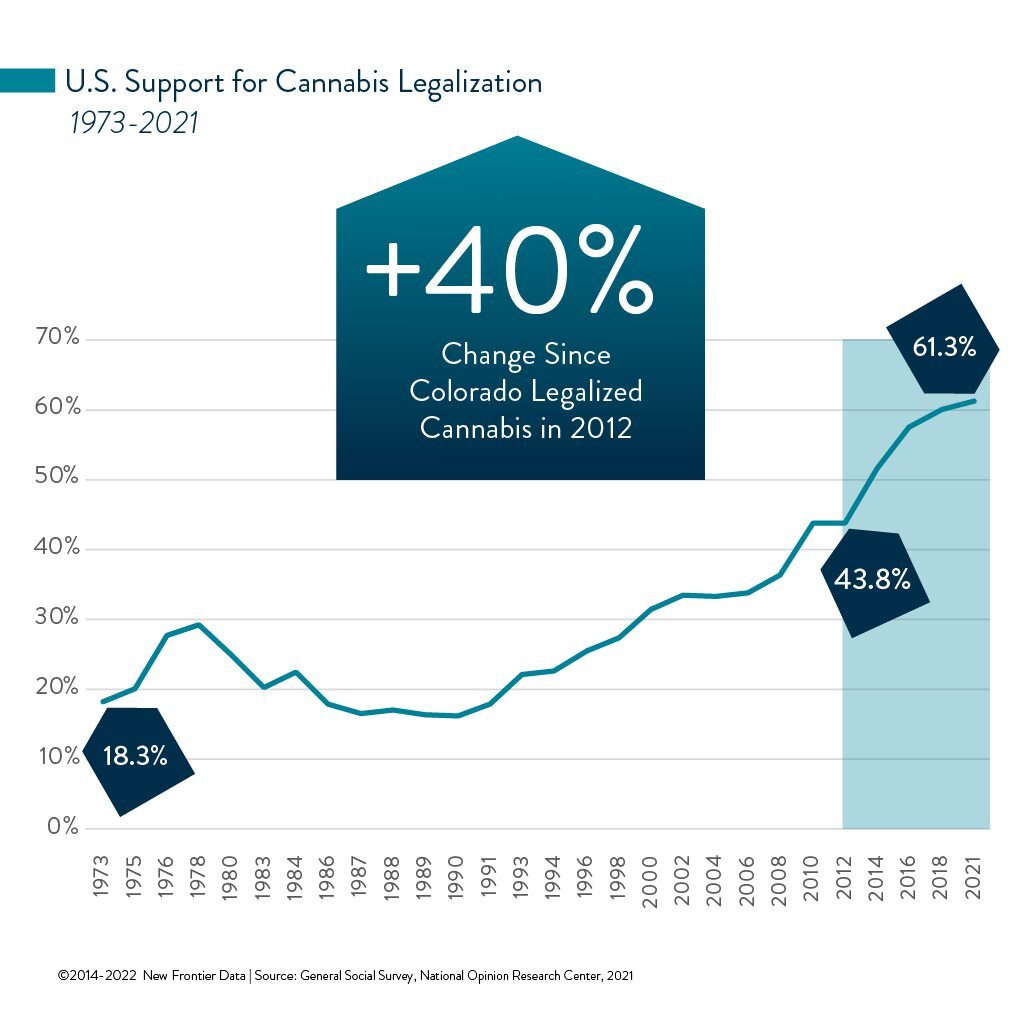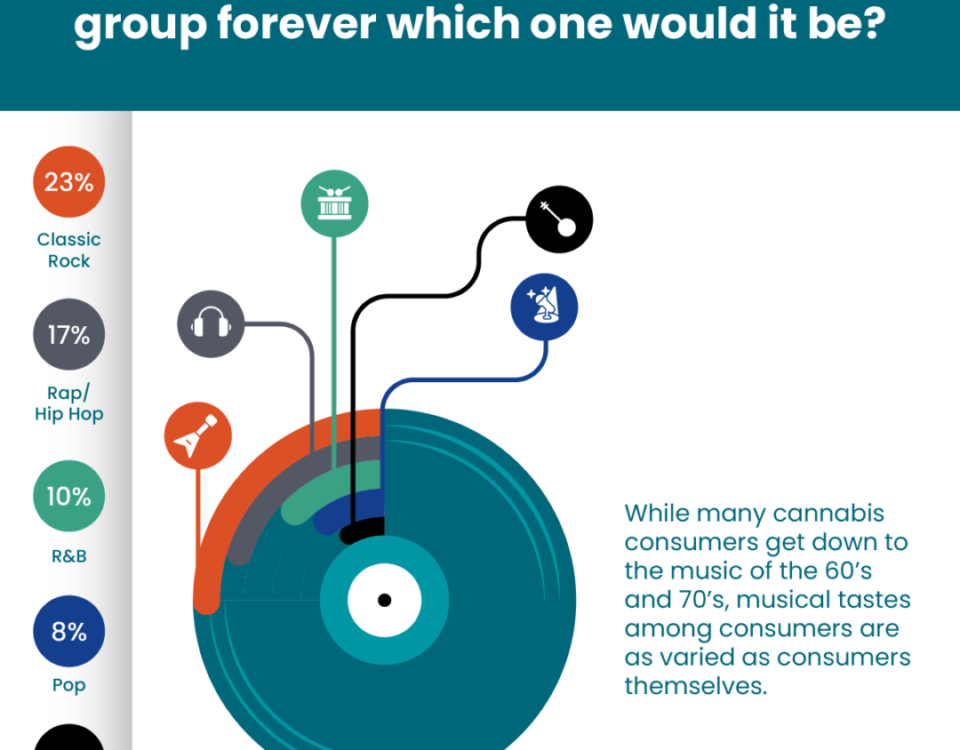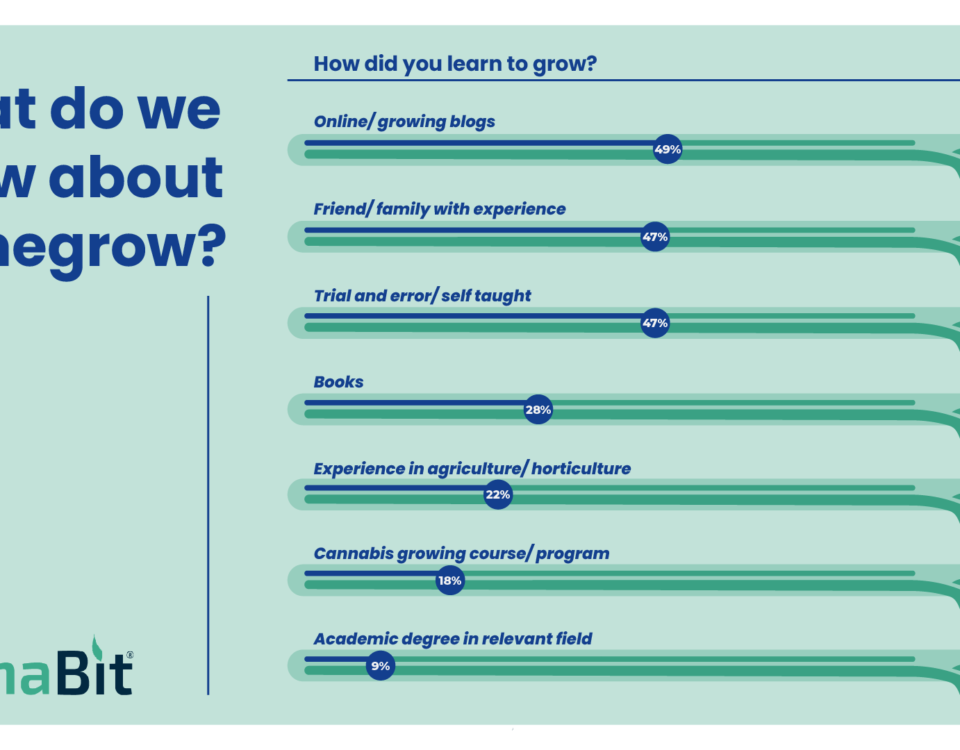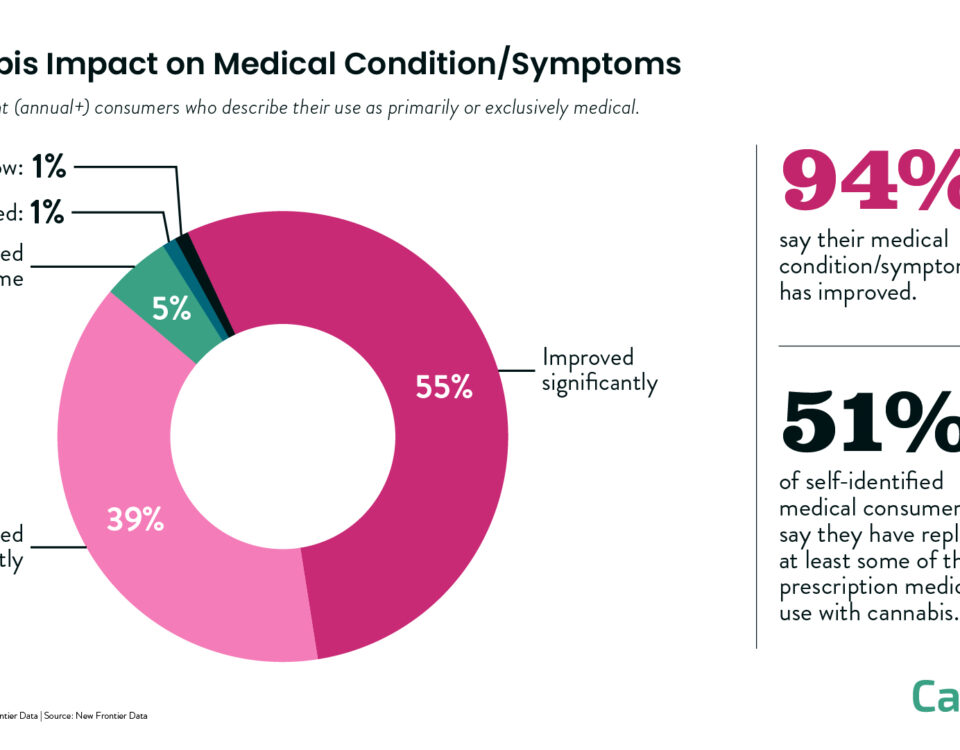Survey Says: Opposition Keeps Fading to Legalization’s Favor

In a Fragmented Product Landscape, Consumer Understanding is Critical
February 23, 2022
Which States Are Looking to Legalize Cannabis This Year?
March 8, 2022By John Kagia, Chief Knowledge Officer, New Frontier Data
Considered the statistical standard since 1972, the biennial update of the General Social Survey (GSS) from the University of Chicago’s National Opinion Research Center is out, and it is a veritable diamond mine of data points from public opinion polling. By parsing and juxtaposing nearly 6,000 variables, the GSS provides a vast array of insights to the American public’s attitudes, beliefs, and experiences about broad socioeconomic issues, cultural behaviors, and the national institutions and policies involved with them.
Where the legal cannabis industry is concerned, the newly released 2020 survey’s results show that support for cannabis legalization remains strong and steady, incrementally increasing from 60% in 2018 to 61% in 2020. Amid that national consistency, however, some striking demographic differences persist.
Support for legalization is now highest among adults of ages 26-35, approximately three-quarters (72%) of whom favor legalization, while support is conversely lowest (52%) among Americans over the age of 65. Nevertheless, even among those relative splits, a majority among every surveyed age group supports legalization.
Political Disparities Remain
Sharper contrasts were revealed according to political orientation and party affiliations. Democrats (at 73%) were far more likely than were Republicans (43%) to support legalization, with independents (60%) virtually mirroring the overall national average. Among self-described liberals (91% in favor), support for legalization was 35 percentage points stronger than it was among self-identifying conservatives (55%).

Since the GSS began in 1972, the number of Americans who self-identify as independents has increased, from 26% then to 40% in 2020. Most of that growth has come at the expense of Democrats, with affiliation decreasing from 47% to 34%, while Republican identification has remained virtually unchanged (from 22% to 23%).
Predictably, attitudes toward crime and justice have strongly correlated to views on legalization. One GSS question asked respondents what should be a bigger priority for the justice system: Strengthening law and order through more police and greater enforcement of the laws, or reducing bias against minorities in the criminal justice system by reforming court and police practices? Respondents who prioritized addressing biases in the criminal justice system were three times likelier to support legalization than were those preferring greater investment in enforcing the law (by 77% to 23%, respectively).
Attitudes Per Sexual Orientation and Religion
Another category of notable difference was based on respondents’ sexual orientations. Though there is almost no difference separating the views between males (60% in favor) and females (62%), dramatic differences were defined by sexual orientation. Strong majorities among those identifying whether as gay, lesbian, or homosexual (86%), or as bisexual (84%) more strongly supported legalization when compared to heterosexuals (59%). The higher levels of support among the LGBTQ community correlate to significantly higher rates of cannabis use seen within that community relative to among heterosexual adults. In New Frontier Data’s last cannabis consumer survey, cannabis use among LGBTQ adults was demonstrably three times higher than among heterosexual adults.
The GSS data affirms a potentially vital takeaway about national attitudes toward cannabis policy as the country approaches the 2022 midterm elections: There is no significantly obvious constituency which strongly favors cannabis prohibition.
Even among religious groups which historically have strongly expressed opposition, cannabis legalization is no longer a reliable indicator of support. Among 13 religious affiliations participating in the GSS, only two groups – Hindus and Muslims – opposed legalization by clear majorities (with 39% of Hindus and 19% of Muslims, respectively, supporting reforms). Comparatively, majorities among all other identified religions – including Orthodox Christians (69%), Jews (67%), Buddhists (60%), Catholics (54%), and Protestants (53%) supported legalization.
The seismic shift in public support across nearly 50 years of the GSS justifies optimism about federal cannabis reform. New Frontier Data’s cannabis business intelligence platform Equio provides insights, data, news, and analysis of vital industry metrics about the rapidly evolving cannabis industry.
The markedly diminishing political bases which once fiercely opposed legalization will offer commensurately few obstacles for national politicians seeking to address incongruities between federal and state laws.




